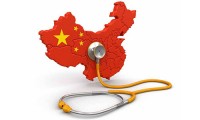-
New Data Management Regulations Creates Hindrance for International Pharma Companies in China
- Source: Fierce Pharma
- 875
- June 11, 2018
-
Zhifei Biological Products, the 2018 Richest Drug Maker in China
- Source: Ddu
- 935
- June 1, 2018
-
Rise in China’s Global Pharma Market up to $175 billion by 2022 – Market Prediction
- Source: Ddu
- 1,305
- May 24, 2018
-
Digital Health Card on WeChat
- Source: drugdu
- 1,147
- May 23, 2018
-
Big Events on Pharmaceuticals during NPC & CPPCC
- Source: EN-CPhI
- 1,908
- March 26, 2018
-
U.K. Startup Medopad Signs Deals with Tencent and Ping An
London-based startup accompanying U.K. Prime Minister on trade mission
- Source: Bloomberg Technology
- 726
- February 1, 2018
-
China’s digital healthcare transformation – private hospital achieve HIMSS milestone
- Source: Healthcare IT
- 836
- January 25, 2018
-
Streamlined CFDA Review Process — New Opportunities in China
- Source: brandwoodbiomedical
- 920
- December 8, 2017
your submission has already been received.
OK
Subscribe
Please enter a valid Email address!
Submit
The most relevant industry news & insight will be sent to you every two weeks.













